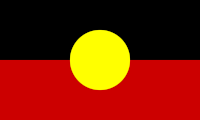Funding has been reinstated for a Victorian program introduced during the pandemic to provide shelter for rough sleepers that has been described as world’s best practice for solving homelessness.
The state budget had not initially included continued funding for the From Homelessness to a Home (H2H) program. H2H was established by the state government at the beginning of the COVID-19 pandemic to house rough sleepers in hotels and provide permanent homes and support services when lockdowns ended.
People staying in hotels have been given tailored support – including mental health, drug and alcohol, and family violence assistance – which continued when they moved into long-term housing.
The Council to Homeless Persons welcomed the decision to reinstate the funding for another year and hopes funding will be ongoing.
(Source: Council to Homeless Person’s eNews, 9.6.22
In April, the Specialist Family Violence Courts (SFVCs) Listing Policy V2 was released.
The purpose of the SFVC Listings Policy is to establish general principles that guide the listing of family violence matters within the Court, these include:
- A consistent approach to the Court’s response to children and adults who have experienced family violence and respondents across the Court
- The centrality of risk (as expressed in the MARAM) as a guide to the Court’s policy and approach
- The whole court is a SFVC, not a single courtroom or a single magistrate
- Allowing sufficient time for matters to be determined to ensure just outcomes and the safety of court users.
During 2022, the Magistrates Court of Victoria (the Court) will deliver a specialist family violence response throughout Victoria. With the legal profession, police, and specialist family violence services, the Court will lead an integrated and collaborative response to all families before the Court.
This SFVC response will list family violence matters based on three mutually reinforcing elements:
- all family violence matters will receive a specialist family violence response
- related family violence matters should be heard together where possible
- the same magistrate should preside over matters relating to a family, where to do so promotes safety and efficient case management.
This Policy will be applied at all Headquarter Courts from 30 September 2022, with early implementation of some aspects already commenced.
If practitioners have questions about the Listings Policy, they can contact Melinda Stuart-Adams, Executive Director – Family Violence Brand, Magistrates Court of Victoria at melinda.stuart-adams@courts.vic.gov.au.
(Source: Safe and Equal member update, 3.6.22)
The Neighbourhood Justice Centre (NJC) are trialling having a court support dog (called River) and her professional handler Tessa onsite at the NJC during Intervention Order (IVO) hearing days on Tuesdays.
Research has shown that spending time with a court support dog can help to relieve stress and anxiety in people while they are waiting for their court hearings. NJC are offering to people waiting for their IVO court hearing the opportunity to spend some time with River in a private space. River is an amazing Labrador X Golden Retriever dog. She is highly trained and is calm, gentle and can recognise and respond to the emotions of humans.
Workers with clients (AFM) with an IVO listing at NJC on Tuesdays before 5 July, can advise their clients of the service. Clients can request time with River if they call Registry or Info Team prior to their hearing or on arrival on the day.
(NJC email, 15.6.22)
Clear Space is the first fully online Men’s Behaviour Change group in Australia for gay, bi, trans and queer men who are looking to change their use of violence in their relationships.
A partnership between No to Violence (NTV), ACON (NSW) and Thorne Harbour Health, Clear Space is a pilot program that has been funded by NTV and will be evaluated by Monash. By providing this space for gay, bi, trans and queer men in the Men’s Behaviour Change space, the partners hope to build an evidence base to support more effective, inclusive interventions with LGBTIQA+ people who have used violence in their relationships.
The Clear Space group will meet online, and support participants to discuss the impacts of their behaviour on themselves, partners and others. Throughout the group program, participants will look at ways to make the changes needed, to have the kinds of relationships they want. The focus will be on honesty, responsibility and support for making change.
(Thorne Harbour Health email, 26.5.22)
Along with Berry Street and McAuley, Good Samaritan Inn (GSI) have been successful in gaining funding through the state budget to provide additional housing and support responses utilising suitable agency owned infrastructure. $11.2 million over four years has been allocated to support the agency-led proposals.
Through the state budget, Family Safety Victoria have agreed to provide GSI with the capital funds required to redevelop an unused catholic church owned property in Banyule to create 10 new self-contained transitional units for women and children experiencing family violence.
For sustained recovery some women and families require longer term support, so GSI plans to expand and extend the service to provide a continuation of the supportive engagement process it has begun at GSI’s crisis refuge. The new service extension will prioritise women and families from marginalised groups including those with no permanent residency.
Berry Street has been funded to assist with operating a five-unit residential facility and three-bedroom property by providing additional staffing, therapeutic supports and brokerage for family needs.
(Source: Safe and Equal member update, 11.5.22 & Good Samaritan Inn email, 19.5.22)
The third of seven topic-based reports by the Family Violence Implementation Monitor examines the early identification of family violence within universal services.
Themes arising from the report:
- Concerted efforts have been made to build the capacity of universal health and education workforces to identify family violence.
- There are areas of planning and modelling that could be strengthened.
- There is variability in access to services after family violence has been identified.
- A clear model for secondary consultations would improve coordination and consistency.
- Ongoing monitoring of reform progress and impact is essential.
- Certain cohorts face additional barriers to having family violence identified by universal services.
Recommendations include:
- Allocate implementation support funding for multiple years and ensure further funding is communicated well in advance.
- Provide sector-specific advice to staff in universal services on referral and secondary consultation options.
- Ensure that prescribed organisations have appropriate trauma-informed policies and support for staff with lived experience.
- Further consider what is required to embed MARAM including through:
- Additional strategies to incentivise phase 2 workforces to engage in training etc.
- Access for every prescribed organisation to some form of dedicated support for their organisational alignment with MARAM.
(Source: Family Violence Monitors Reports webpage, May 2022)
The Australian Domestic, Family and Sexual Violence Recovery Alliance is a newly formed community-based coalition of domestic, family and sexual violence recovery services and survivor advocates from across Australia.
The Alliance will consolidate and strengthen national advocacy efforts to support awareness raising about the long-term impact of domestic, family and sexual violence and abuse, and the urgent need for accessible and appropriate multisectoral services for victim survivors to support their recovery and prevent ongoing cycles of violence.
(Source: Australian Domestic, Family and Sexual Violence Recovery Alliance website, 11.5.22)
The annual Rental Affordability Snapshot, released by Anglicare Australia, surveyed 45,992 rental listings across Australia and provides the evidence base for the dire situation of private rental affordability. Data shows that just seven rentals in Australia are affordable for a person on JobSeeker.
The Equity Economics Nowhere to Go report (2021), reported that over 9,000 women become homeless every year after leaving family violence situations. The rental property situation is adding significant stress to this reality and impacting on the demand for social housing.
(Source: Homelessness Networker Coordinator- Northern Region email, 28.4.22)
The House of Representatives Select Committee on Social Media and Online Safety has released its report investigating the range of online harms faced by Australians on social media and other online platforms and the impacts of these harms on wellbeing. This includes being stalked and threatened online, particularly in the context of domestic and family violence.
eSafety’s research indicates that women and their children who are experiencing domestic and family violence ‘almost always experience technology-facilitated abuse designed to extend coercion and control over their lives’.
The Report makes 26 recommendations. Find the report here.
Find more information about resources regarding tech safety at WESNET.
(Source: Centre for Excellence in Child and Family Welfare, 14.4.22)
A parliamentary inquiry into Victoria’s Criminal Justice has investigated a number of issues including misidentification of primary agressors; overrepresentation; policing; victims of crime support needs; judicial appointments; and judicial training and education.
The report makes 100 recommendations including in relation to the misidentification of primary aggressors. It recommends that Victoria Police ensure all front-line police officers undertake regular training regarding responding to family violence, including in relation to the gendered nature of family violence and the factors informing the misidentification of aggressors (including cultural and language barriers).
Find more information about the issues about misidentification in the previously published Family Violence Monitors report: Monitoring Victoria’s Family Violence Reforms: Accurate Identification of the Predominant Aggressor. This report examines the progress that has been made to support key workforces to accurately identify the predominant aggressor; explores the reasons for victim survivors being misidentified as perpetrators; and provides a suite of proposed actions for government to address the issues identified.
(Source: Centre for Excellence in Child and Family Welfare, 14.4.22)

